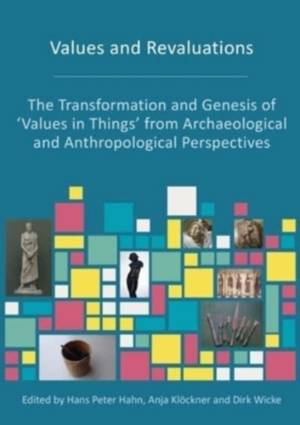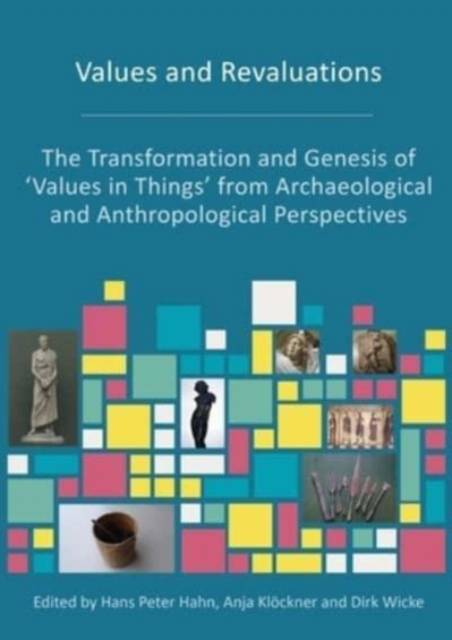
- Afhalen na 1 uur in een winkel met voorraad
- Gratis thuislevering in België vanaf € 30
- Ruim aanbod met 7 miljoen producten
- Afhalen na 1 uur in een winkel met voorraad
- Gratis thuislevering in België vanaf € 30
- Ruim aanbod met 7 miljoen producten
Zoeken
Values and Revaluations
The Transformation and Genesis of 'Values in Things' from Archaeological and Anthropological Perspectives
Paperback | Engels
€ 63,95
+ 127 punten
Omschrijving
Why are some things valuable while others are not? How much effort does it take to produce valuable objects? How can one explain the different appraisal of certain things in different temporal horizons and in different cultures? Cultural processes on how value is attached to things, and how value is re-established, are still little understood.
The case studies in this volume, originating from anthropology and archaeology, provide innovative and differentiated answers to these questions. However, for all contributions there are some common basic assumptions. One of these concerns the understanding that it is rarely the value of the material itself that matters for high valuation, but rather the appreciation of the (assumed or constructed) origin of certain objects or their connection with certain social structures. A second of these shared insights addresses the ubiquity of phenomena of 'value in things'. There is no society without valued objects. As a rule, valuation is something negotiated or even disputed. Value arises through social action, whereby it is always necessary to ask anew which actors are interested in the value of certain objects (or in their appreciation). This also works the other way round: Who are those actors who question corresponding objective values and why?
The case studies in this volume, originating from anthropology and archaeology, provide innovative and differentiated answers to these questions. However, for all contributions there are some common basic assumptions. One of these concerns the understanding that it is rarely the value of the material itself that matters for high valuation, but rather the appreciation of the (assumed or constructed) origin of certain objects or their connection with certain social structures. A second of these shared insights addresses the ubiquity of phenomena of 'value in things'. There is no society without valued objects. As a rule, valuation is something negotiated or even disputed. Value arises through social action, whereby it is always necessary to ask anew which actors are interested in the value of certain objects (or in their appreciation). This also works the other way round: Who are those actors who question corresponding objective values and why?
Specificaties
Betrokkenen
- Uitgeverij:
Inhoud
- Aantal bladzijden:
- 272
- Taal:
- Engels
Eigenschappen
- Productcode (EAN):
- 9781789258134
- Verschijningsdatum:
- 22/03/2022
- Uitvoering:
- Paperback
- Formaat:
- Trade paperback (VS)
- Afmetingen:
- 170 mm x 239 mm
- Gewicht:
- 616 g

Alleen bij Standaard Boekhandel
+ 127 punten op je klantenkaart van Standaard Boekhandel
Beoordelingen
We publiceren alleen reviews die voldoen aan de voorwaarden voor reviews. Bekijk onze voorwaarden voor reviews.










